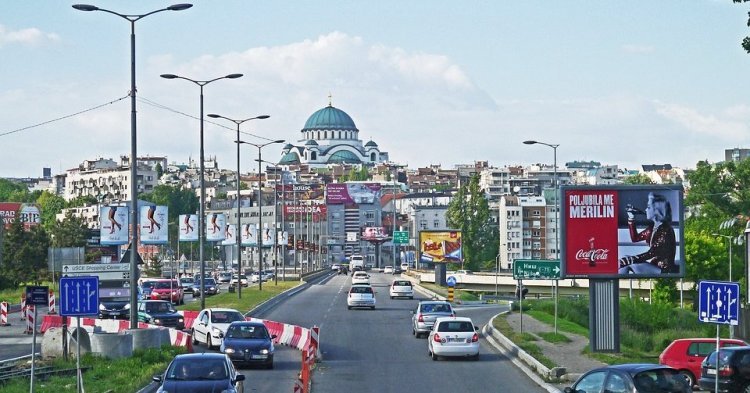“While much has changed in the Western Balkans since the end of the Yugoslav wars, old ways and government attitudes towards the media die hard”. This is how a report by Human Rights Watch summarised the ever-difficult situation for the press in the Western Balkans. As a matter of fact, the region’s stagnation in RSF’s press freedom rankings has been evident for years. Bosnia-Herzegovina occupies the 63rd position, followed by Kosovo (70th), Albania (84th), Serbia (90th), North Macedonia (92nd) and Montenegro (105th). In comparison, its eastern neighbour and EU Member State Bulgaria, occupies the 111th position.
Despite widespread common concern, each individual country faces its unique situation. It is perhaps most worrying in Serbia, where press freedom has continuously worsened since Aleksandar Vučić came to power (first as prime minister, then as President). In 2016, the country was still placed 63rd. Yet in a political climate which is strongly hostile towards journalists, authorities in Belgrade tolerate - and even encourage - the spread of false information. North Macedonia, on the other hand, can be considered the region’s ‘success story’: the country has seen a drastic reduction in the number of assaults against journalists in recent years, thanks to a change in government and the implementation of new measures protecting journalists – despite a political climate which remains very tense. Notwithstading the strong ethnic tensions within the country, Kosovo moved up 20 places between 2016 and 2020. Albania, on the other hand, has seen the opposite effect, climbing from 102nd place in 2013, to 75th in 2018, before falling nine places two years later.
However, the culture of violence and impunity is broadly similar across the region. Despite instances of harassment and assaults —sometimes violent— journalists and reporters continue to investigate topics that are highly sensitive for the economic and political elite, whilst public prosecutors do little to prosecute the culprits. In Montenegro particularly, one of the most difficult countries for journalists, the authorities actively put pressure on journalists under the pretext of combatting the spread of ‘fake news’. This strategy is also used by their Albanian neighbours.
Media concentration and lack of diversity in many cases, as well as collusion within various political and economic spheres, only serve to aggravate an already tense situation.
The Coronavirus pandemic has once again highlighted people’s vulnerability to false information, spread by, amongst others, Russian or Chinese trolls, who seek to target the EU’s supposed incapability to protect itself, whilst also highlighting how little the EU pays attention to the Western Balkans. Ethnic tensions, largely inherited from the Yugoslav wars, are still very persistent and largely influence the media in Bosnia-Herzegovina and Kosovo, two countries which particularly suffered during the 1990s. Furthermore, RSF reports that the media are often divided either by language (Serbian and Albanian) or religion (Orthodox Christianity and Islam). The Serb-majority Republika Srpska, part of Bosnia and Herzegovina, is truly a journalist’s no-go zone. Even more worryingly, journalists who investigate war crimes are often victim to recurrent threats and can even pay a heavy price themselves – the disappearance of around 10 reporters during the Kosovo war has still not been resolved.
The Western Balkans’ future EU memberships presents a real challenge for the Union. Whilst Ursula von der Leyen has continuously alleged that press freedom is a priority of hers, European institutions must reflect this by demanding a significant improvement in the media landscape and working conditions for journalists, particularly in Albania and in North Macedonia, two countries with whom the EU has begun negotiations. If the European Commission is to finance initiatives in the region which promote media pluralism, particularly within the context of the European Endowment for Democracy (EED), or of regional training programs with the aim of improving quality and professionalism within journalism, it must adopt a more committed position in order to condemn the abuse against journalists and the press.


Follow the comments: |
|
